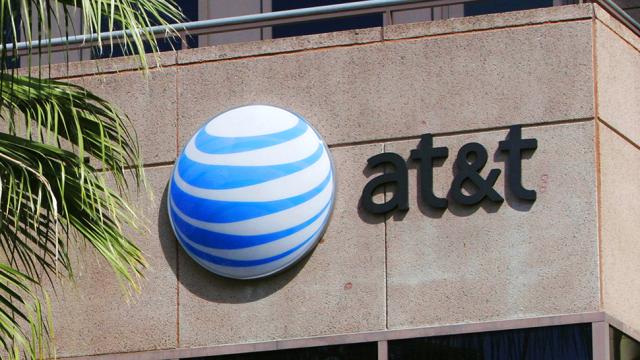It’s a confusing time for net neutrality legislation. Since the FCC voted to repeal Title II protections for the open web in December, a lot of solutions are being thrown around. One good rule is to never trust any arguments presented by telecoms. Alas, on Wednesday, AT&T issued a laughable statement saying it supports net neutrality, but it might need “fast lanes” to keep self-driving cars from slamming into each other.
Wednesday brought another “Day of Action” protest to support net neutrality, and this time it was specifically designed to raise awareness about the efforts in Congress to reverse the Federal Communications Commission’s decision to abandon net neutrality rules. Democrats in the Senate are one vote shy of pushing through the initiative under the Congressional Review Act. It’s a long shot and would face greater hurdles in the House, but it’s all part of the process. It might surprise you that AT&T wanted everyone to know that it supports the Day of Action. And, in fact, it supported the last Day of Action. But it supports these efforts in the way that the majority of Americans support the end of net neutrality – that is to say, not at all.
Bob Quinn is AT&T’s Senior Executive Vice President of External & Legislative Affairs, which is just a fancy way of saying he’s one of its top dogs in the lobbying racket. The job of putting out a confusing statement about AT&T’s net neutrality position fell to him this year, and he did an admirable job of appearing to say what the majority of Americans want to hear while simultaneously saying the opposite.
Like other major telecoms, which have spent tens of millions of dollars to end net neutrality, AT&T says it really wants the same net neutrality protections, it just wants them to be in a law passed by Congress rather than a regulation imposed by an agency. Quinn writes:
But no matter what some of the advocates argue, AT&T has supported enforceable net neutrality rules that do not crush investment incentives for over 10 years; there is nothing weak about them. The simple reality is that we won’t achieve those rules unless and until Congress acts. So, for today’s Day of Action, we reiterate our call for a Federal Consumer Bill of Rights that provides consumers with openness, transparency and privacy protections no matter where they go on the internet.
A Bill of Rights for the internet is a common telecom talking point. And it’s common wisdom that their motivation for this may be that their lobbyists will end up writing the federal legislation, just like they routinely write state legislation. Still, with all of the chaos going on in privacy, access to the internet, and security, some sort of guarantee of individual rights sounds in theory like a good idea. What does AT&T say its positions are regarding this type of bill?
First of all, AT&T wants you to know that it “has been” publicly committed to the following principles for a long time: “don’t block websites; censor online content; or throttle, degrade or discriminate in network performance based on content; and disclose to consumers how you manage your network to make that happen.” But, Quinn goes on to write, “no discussion of net neutrality would be complete without also addressing the topic of paid prioritisation.” Apparently, throttling, degrading, or discriminating against in network performance based on content is outrageous, but doing those things based on a big paycheck is a different story. But no, Quinn says that “AT&T is not interested in creating fast lanes and slow lanes on anyone’s internet.” So, what are we talking about again?
What we do care about is enabling innovative new technologies like autonomous cars, remote surgery, enhanced first responder communications and virtual reality services, which are real-time interactive services that require end-to-end management in order to make those services work for consumers and public safety. Consumers want those innovations and they want them to always work. We have consistently felt consumer choice in this area was paramount. I think we can all agree that the packets directing autonomous cars, robotic surgeries or public safety communications must not drop. Ever. So, let’s address concerns around paid prioritisation without impacting those innovations.
Damn. All that sounds scary. Driverless cars careening off of bridges, robot surgeons carving up arteries, virtual reality users… unable to use their virtual reality. I could respond to each of these scare tactics individually, but Quinn makes that unnecessary when he writes, “one problem with the 2015 FCC decision was that the regulations appeared to capture services like these managed end-to-end services and required innovators and internet providers to seek government permission to make sure these services would not run afoul of the ban on paid prioritisation.” He’s saying that the regulations appeared to require government approval for any services that might create an internet fast lane. What’s wrong with that?
When Quinn says that AT&T wants to “have a conversation to figure out how to ban fast lanes and slow lanes, while also ensuring that innovative, new real-time technologies like those described above continue to live in a world where permission-less innovation exists,” it sounds like he’s describing the situation we had before the FCC repeal. Fast and slow lanes were banned, but exceptions could be made with government oversight.
We asked AT&T to clarify whether it insists that any Bill of Rights must allow for paid fast lanes. We’ll update this post when we receive an answer.
Telecoms want to gather public support for a bill that will inevitably be filled with loopholes as fast as possible. States are straightforward site that helps you to check if your representative opposes net neutrality. Remember, voting out a telecom shill could also lead to two-faced lobbyists losing their jobs. It’s extra satisfying when you think of it that way.
[AT&T]
